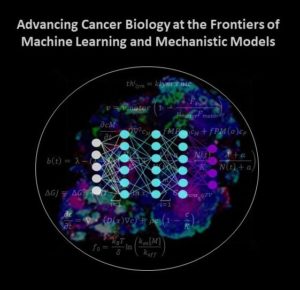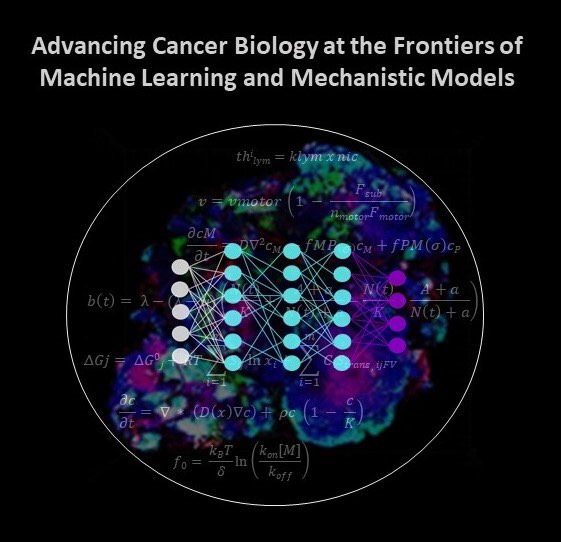 The National Cancer Institute (NCI) in collaboration with Carnegie Mellon University, and Knowinnovation are convening experts in cancer systems biology, mathematical modeling and machine learning to come together, share ideas, form new collaborative teams, and propose and refine interdisciplinary pilot projects. The Innovation Lab “Advancing Cancer Biology at the Frontiers of Machine Learning and Mechanistic Modeling” will be held on June 1-5, 2020.
The National Cancer Institute (NCI) in collaboration with Carnegie Mellon University, and Knowinnovation are convening experts in cancer systems biology, mathematical modeling and machine learning to come together, share ideas, form new collaborative teams, and propose and refine interdisciplinary pilot projects. The Innovation Lab “Advancing Cancer Biology at the Frontiers of Machine Learning and Mechanistic Modeling” will be held on June 1-5, 2020.
Summary of the Opportunity
The cancer research field has benefited from both data-driven models (machine learning, including deep learning, for example) and mechanistic models (those commonly employed in systems biology)). While machine learning techniques have been used throughout the cancer research space to analyze large datasets and glean insight from disparate data sources, the newer, more powerful methods of deep learning that have enabled advances in fields like robotic vision and image recognition have been used less commonly and primarily in a narrow space of clinical image feature detection. These data-driven models are powerful when presented with large data sets, but the data sets available to cancer researchers and informaticists are usually small, multimodal complex data sets that are not always machine readable and require a combination of approaches.
Cancer systems biologists use many different and equally sophisticated mathematical approaches to model, understand and make predictions about cancer processes, often using a variety of data types, prior knowledge, and contextual information. The cancer systems biology community has, in recent years, begun to explore deep learning methods in combination with their other approaches to build predictive models of the cancer processes under study.
There is substantial opportunity for new algorithms and approaches that combine new ideas in AI with domain knowledge in cancer to further our understanding of disease mechanisms. For example, techniques for learning from limited data (for example, reinforcement learning) may be applicable to certain kinds of cancer data and could aid in parameterizing mechanistic models of cancer initiation, progression, and metastasis. Similarly, it may be valuable to apply machine learning approaches across multimodal data (histology, genomics, and clinical data) to capture different information that is salient to understanding cancer and may be difficult to integrate using traditional mathematical modeling approaches.
Building useful computational models of cancer requires the inclusion of cancer biologists or oncologists in the model building process. Through support for systems biology and physical sciences, the NIH National Cancer Institute has supported not only mathematicians and computer scientists but biologists who work closely with these quantitative scientists. Biologists are critical to include within discussions at the Innovation Lab, setting priorities for what should be modeled, explaining the cancer context of a biological challenge, and considering ways to validate resulting model predictions.
What is an Innovation Lab?
An Innovation Lab is an intensive 5-day residential program including 30 participants representing a range of disciplines. Over the course of the week, the group works to deepen their shared understanding of the designated challenge, usually a complex one, to redefine the problems within the challenge and to generate novel ideas for research proposals. Teams form and ideas are developed through real-time feedback from mentors and peers over the course of multiple days, as facilitators and mentors guide participants through the early stages of proposal development. The outcome: inter-disciplinary research that’s risky, cutting edge and unlikely to get funded through any other source. To kickstart the work of some of the teams and to foster further collaborative activity, seed funding will be made available thanks to funding from NCI through Carnegie Mellon University.
Investigators with a wide variety of expertise, including, but not limited to, cancer biology, oncology, machine learning (or other AI), cancer systems biology, or mathematical modeling are encouraged to apply to attend the 2020 “Advancing Cancer Biology at the Frontiers of Machine Learning and Mechanistic Models” Innovation Lab.
All travel and attendance costs will be paid for each participant.
Applications are due March 20, 2020.




